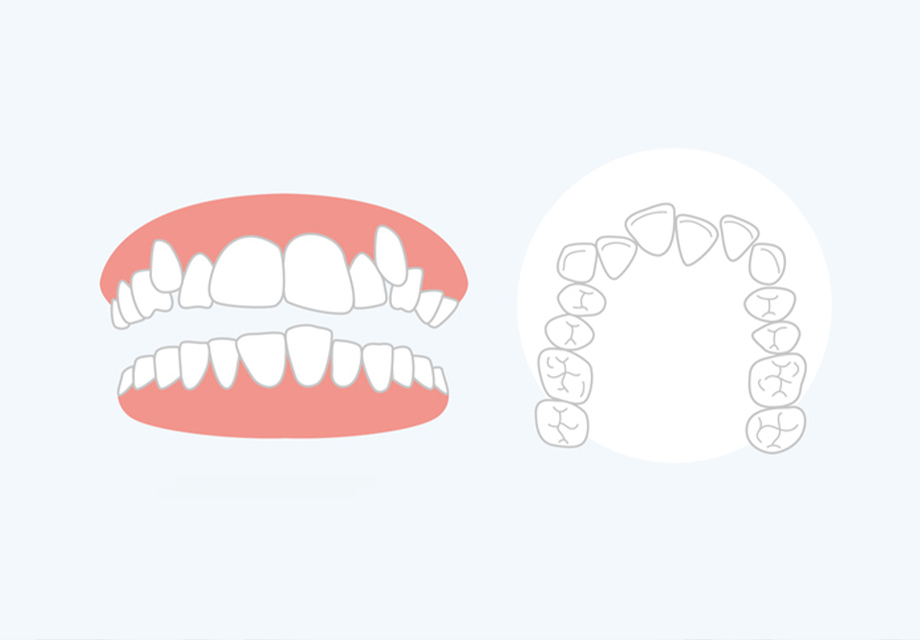How to Strengthen Teeth? 6 Tips to Make Enamel Strong Naturally
Written by Dr. Asma Abidin, BDS | Medically Reviewed by Dr. Shaista Salam, BDS; Dr. Zein El Hammouz, DDS, MFD/RCSI

Table of Contents
1. How Do You Know If Tooth Enamel Is Weak?
2. Foods and Bad Dental Habits that Weaken Teeth
3. How To Strengthen Teeth Enamel
Let’s start from the basics. What is enamel? Why should we think about its strength? Is it far-fetched to wonder, “Can I strengthen my enamel?” Enamel is the outermost layer covering our teeth' surface. It is known to have the highest mineral content in the body (96%), which is to say, it’s tougher than your bones! [1]
This article will walk you through everything you need to know, from recognizing weak (or eroded) enamel surfaces to developing good habits to strengthen your enamel.
How Do You Know If Tooth Enamel Is Weak?

A weak tooth can present with different signs, some of which include:
White Spot Lesions:
These are areas of demineralization below an intact enamel surface, which appear chalky white in color. Such white spot lesions result from acid attacks on the teeth following plaque accumulation.
Sensitivity or Pain:
Warm and cold foods can trigger a short, sharp pain sensation.[3] The sensitivity usually doesn’t prolong and reduces once the food/drink is ingested.
Cracked/Chipped Teeth:
Decayed teeth surfaces are more prone to fracture when biting on something hard. In addition, parafunctional habits like chewing pencils, safety pins, or biting on hard nuts with the front teeth can also chip the teeth. [4]
At the end of the day, scheduling regular check-ups with your doctor every 6 months can help you identify your weak enamel early on and get the required treatment.
Foods and Bad Dental Habits that Weaken Teeth
Certain foods and habits are known to weaken teeth more than others. Avoiding them can go a long way in keeping your enamel strong. As they say, “Prevention is better than cure.”
1. Acidic food:
It’s been noticed that people with a citrus-based diet are more likely to see their teeth' surfaces erode from the acidic nature. Thus, you should avoid excessive or frequent consumption of acidic foods or sucking lemons (parafunctional habit). [5]
2. Sugar-Sweetened Food and Beverages:
Sugary food and beverages like sour candies, soda, sweetened caffeine, and energy drinks are all known to affect our oral and general health negatively. The sugars remain on the teeth for a long time and are a pathway for bacteria to release acids. [6]
3. Carbonated Drinks:
Enamel erosion is seen more frequently in people who drink carbonated drinks than in those who don’t. It occurs for two reasons [7]:
i) High acidic content of these beverages and ii) High sugar content.
4. Alcohol:
Alcohol dries the oral cavity, and excessive consumption can trigger dry mouth (xerostomia). Less saliva makes it easier for enamel to get eroded by the foods mentioned above. [8]
5. Not Using Dental Floss:
Regularly flossing your teeth helps prevent the accumulation of food between your teeth. These areas are inaccessible while tooth brushing and can be a source of bacterial growth if not cleaned properly.
6. Over-Brushing your Teeth or Brushing too Hard:
You heard it correctly! You can actually over-brush your teeth using a hard-bristled toothbrush if you brush too forcefully or for too long. [9] This combination can lead to tooth surface wear and surface abrasions due to mechanical trauma from toothbrushing.
7. Using Too Strongly-fluoridated Toothpaste:
The typical strength of fluoride toothpaste ranges between 1000 to 1500 parts per million (ppm). However, your doctor can recommend the appropriate concentration of toothpaste depending on the consumer's age.
Although higher fluoride concentrations in toothpaste may offer more protection against decay, it can increase the risk of fluorosis. [10]
8. Parafunctional Habits including:
- Chewing on hard objects: Chewing on hard objects or foods like ice cubes, bones or hard candy can make your teeth more prone to fracture. [11]
- Grinding your teeth: Grinding is a habit we subconsciously turn to when anxious and stressed. Continuous grinding can lead to wear and decay of enamel causing sensitivity in the longer run. [12]
- Nail-Biting: Constantly biting your nails or keeping pens and pencils between your teeth to relieve stress and anxiety is detrimental to your teeth.

How To Strengthen Teeth Enamel
If you’ve been wondering how to strengthen enamel, we’ve got you covered! Here's how you can naturally strengthen your enamel:
Maintain Good Oral hygiene:
Brushing twice daily and flossing after every meal will keep your teeth healthy and strong!
Use Fluoridated Toothpaste:
Fluoride-based toothpaste can help your teeth remineralize and recover while they are still in the early stage of decay.
Ultimately, you should visit your dentist every six months for review and check-ups. This will help identify any sort of tooth wear in its initial stages. Your doctor can also perform a deep cleaning of your teeth to remove any accumulated calculus.

FAQS
.svg)

References
.svg)





.svg)